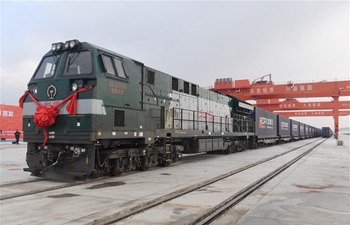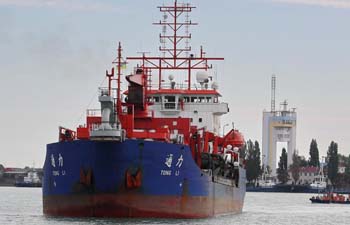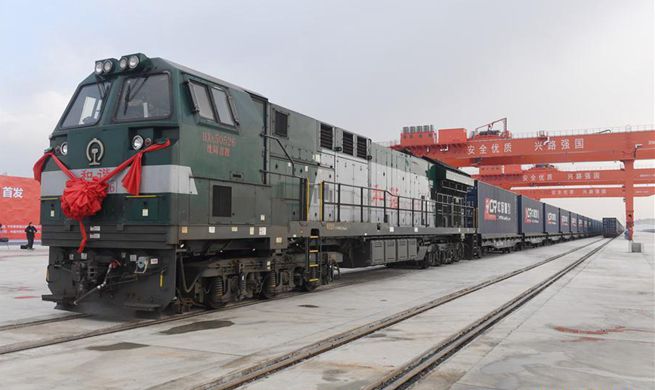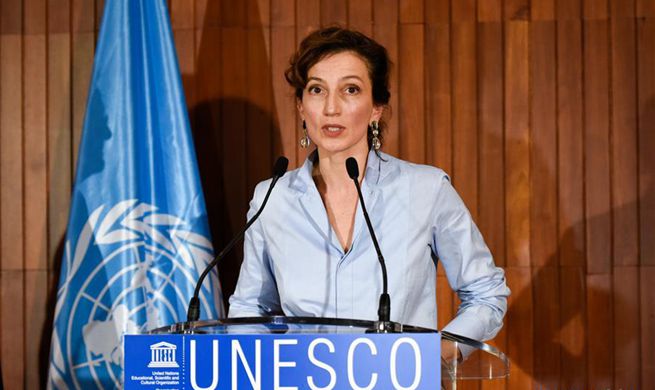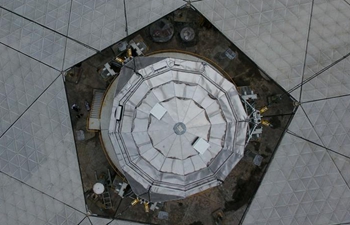by Zheng Jianghua
BRUSSELS, Oct. 13 (Xinhua) -- U.S. President Donald Trump on Friday announced that he will no longer certify Iran's compliance with a landmark nuclear deal, dealing another blow to the already-frayed transatlantic ties.
The Iran nuclear deal, formally known as Joint Comprehensive Plan of Action (JCPOA), was inked in 2015 by Britain, China, France, Russia, the United States and Germany with Iran.
The EU also played an important role in brokering the deal and deemed it as one of the bloc's outstanding diplomatic achievements.
Under the deal, Iran halts its nuclear weapon program in exchange for economic aid and relief of international sanctions.
Trump's announcement came as no surprise, given that he let out a torrent of angry words over the deal on his campaign trail as Republican presidential candidate.
Nevertheless, it is also noteworthy that he grudgingly recertified twice Iran's compliance with the deal since taking office in January.
The tycoon-turned president is believed to be fed up with the quarterly recertification procedure and eager to pass the buck to Congress.
The rash decision has caused an uproar among Washington's European allies, which have already drifted away from the Trump administration following Washington's decision to drop out of the Paris climate accord, and their spat over NATO burden-sharing.
"It (The Iran deal) is not a bilateral agreement. It does not belong to any single country. It's not up to any single country to terminate it," EU foreign policy chief Federica Mogherini delivered a scathing remark at a press conference on Friday on the heels of Trump's announcement.
Underlining that the deal is endorsed by a UN Security Council resolution, Mogherini quipped with a sullen face: "The president of the United States has many powers, (but) not this one."
She reaffirmed that the EU will continue to fully implement the Iran nuclear deal.
Leaders of France, Germany and Britain, by the same token, issued a joint statement, saying they were concerned by the possible implications of Trump's decision.
They urged the U.S. administration and Congress to consider security implications for the United States and its allies "before taking any steps that might undermine the JCPOA, such as re-imposing sanctions on Iran lifted under the agreement."
Despite his criticism of Iran and the Iran nuclear deal, Trump on Friday stopped short of abandoning the nuclear deal.
Instead, he said he was directing his administration to work with Congress and U.S. allies to address "the deal's many serious flaws."
"There will be long discussions whose outcome is difficult to predict today. But we can imagine that it will be difficult for parliamentarians to totally denounce an agreement signed by their country and respected, according to most observers, by all parties," said Julien Zarifian, a French researcher on American issues.
With an "America First" mantra, Trump has shrugged off Europe's appeal over the Paris Accord. He has also been uncompromising on nudging European countries to earmark 2 percent of their economic output for NATO budget.








